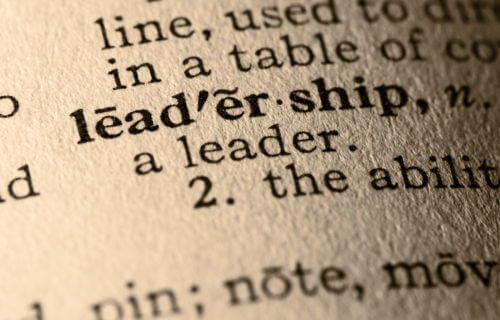SANTA BARBARA, Calif. — What makes a good leader? You might think of people with natural charisma or someone who is a good public speaker. However, a new study by researchers at the UC Santa Barbara adds a new trait to the list — guilt. According to their findings, people who feel more guilt are less likely to become corrupt when they’re in power.
“People who are prone to feeling guilt in their everyday lives are less likely to take bribes,” says Hongbo Yu, a UC Santa Barbara psychology professor and senior author of the new paper.
Yu looks at guilt as an ingrained personality trait where people worry about how their actions affect others, instead of an episodic state which looks at what we feel after a situation where we hurt someone.
“So I could be a person for whom it is really easy to feel guilt in my everyday life,” Yu explains in a university release, “while others might be less likely to feel guilt, or have a higher bar for feeling that emotion.”
Having anticipatory guilt could help in reconsidering certain actions, especially if they would cause harm to others. However, there has been little research on how guilt influences decisions when other factors like temptations and incentives are at play, according to the team. In other words, does guilt have a link to a lower chance of engaging in corrupt behavior?

The study focused on corruption through bribery — an act that leaders (such as politicians) allegedly take part in when there is a gift or favor that serves their best interest. People filled out an online questionnaire that asked about their demographic, personality, and fairness concerns. Afterward, each participant took part in one of two scenarios. The first assigned them the role of an arbitrator with the power to give grades to other students. Each person was paired with a fictional co-player, students waiting to receive their grades. These students would attempt to bribe the participants to change their grade in exchange for sharing the reward they would receive for passing the test.
A second scenario involved giving each person 100 tokens to donate to a children’s charity. Their co-player would then try to persuade the user to give them the money instead. Giving it away to the co-player would let participants keep a portion for themselves.
“So the structure of the two scenarios is similar, but the critical difference is that in the charitable donation scenario, the victim is obvious,” Yu says. “The first scenario is more of just a violation of moral principle.”
People who the questionnaire rated as guilt-prone were less likely to accept a bribe in either scenario. However, guilt-prone people reacted more strongly to the second scenario and refused their co-player’s corrupt suggestions. The difference could stem from concerns for other’s suffering which was more apparent in the second scenario than the first. Children who needed the money would be hurt from the person’s decision.
“You know someone’s going to get hurt,” Yu continues. “In the paper we argue that when the victim is more salient, the association between the guilt trait and corrupt behavior becomes stronger.”
The team says more research is necessary to see other factors that would influence a person making corrupt decisions. A lack of guilt is only one of many predictors people should watch out for when choosing leaders.
“We can’t claim causality, but we can leverage the association between the guilt trait and the lower likelihood of corruption to make us more confident about their integrity,” Yu concludes. “Maybe that’s something we can apply to the real world.”
The study is published in the journal Social Psychological and Personality Science.
You might also be interested in:
- Best Leadership Books: Top 5 Titles Most Recommended By Experts
- Corrupt government tops list of Americans’ greatest fears, survey finds
- Older bosses need to get with the times: Workplace expert calls yelling at staff ‘abusive’


Rare as hen teeth among the dark triad that most leaders fall into.
Oh yeah, power doesn’t corrupt, it draws the already corrupted.